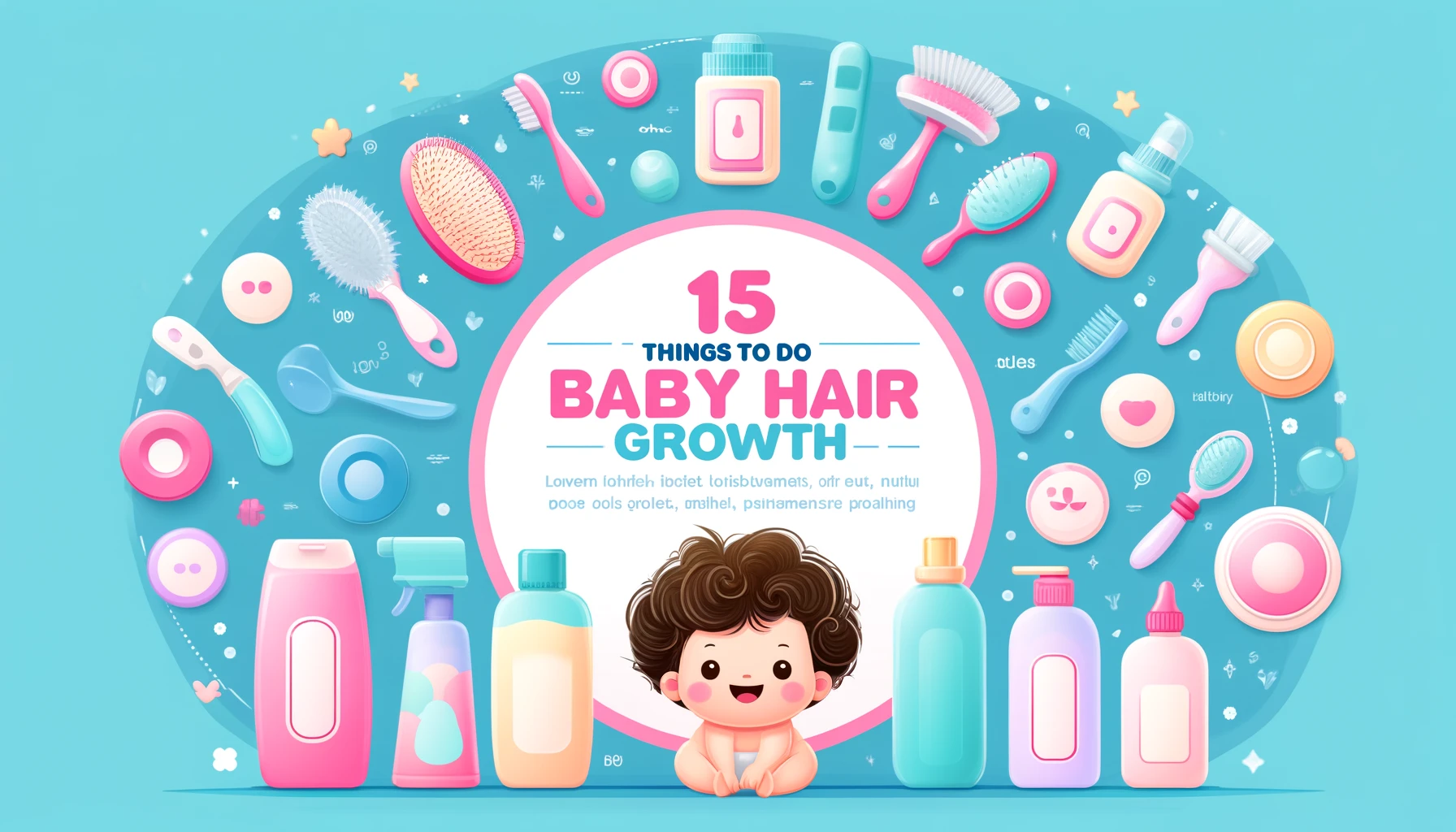When it comes to caring for your baby’s hair, understanding the right practices can make a big difference in promoting healthy and strong hair growth. From the basics of gentle hair washing to ensuring proper hydration, each aspect plays a crucial role in nurturing your baby’s developing hair.
Here are 15 essential tips to help you support the natural growth process of your baby’s hair, ensuring it remains healthy from the scalp to the tips. Each point delves into practical steps that can be integrated into your daily routine to foster a conducive environment for your child’s hair growth and overall well-being.
Gentle Washing
Using a mild baby shampoo to cleanse your baby’s scalp a few times a week is vital. Babies produce less oil than adults, and their skin and scalp are much more sensitive. Frequent washing can strip away the natural oils that protect and nourish the scalp.
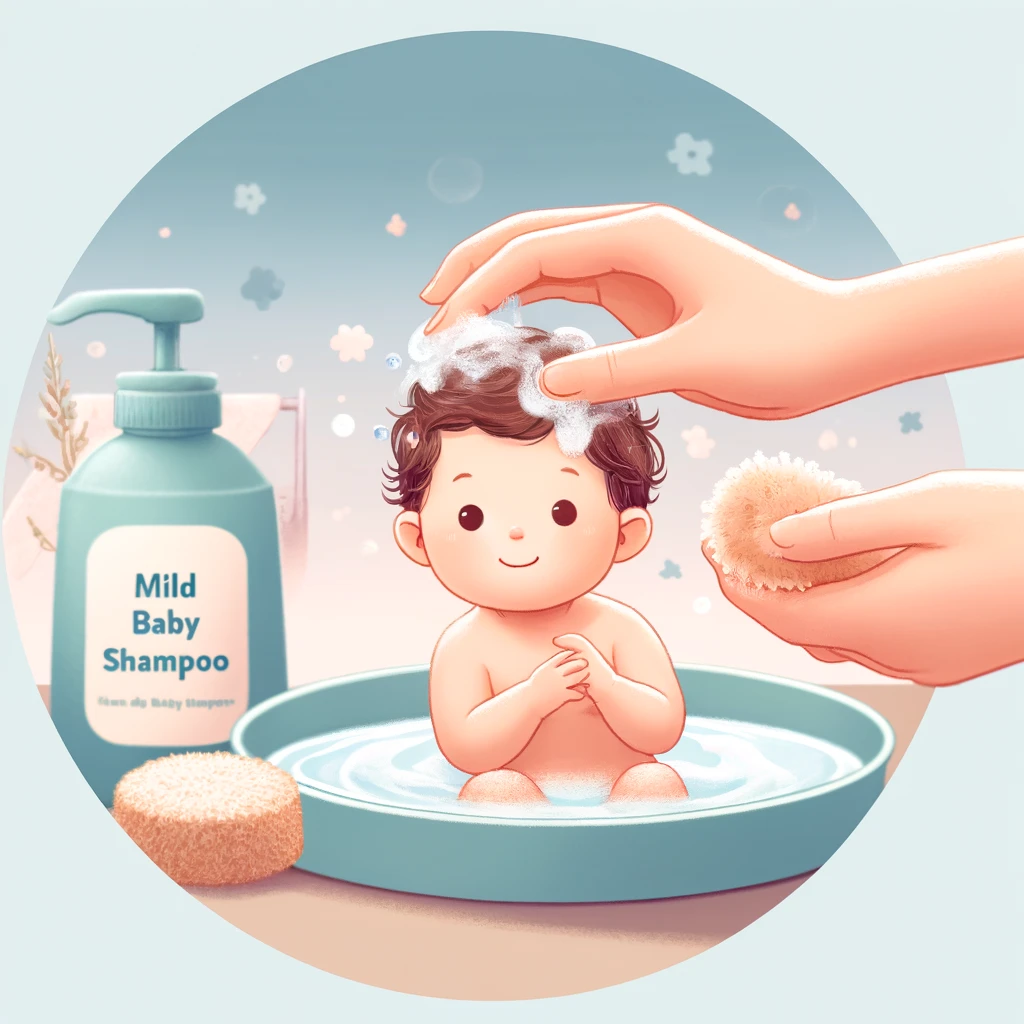
A gentle wash routine helps maintain the scalp’s health by preventing the buildup of oils and dead skin without over-drying, which can be crucial for encouraging healthy hair growth.
Proper Nutrition
The right nutrition is fundamental for all aspects of a baby’s development, including hair growth. For babies, this means breastfeeding or formula feeding according to pediatric recommendations.
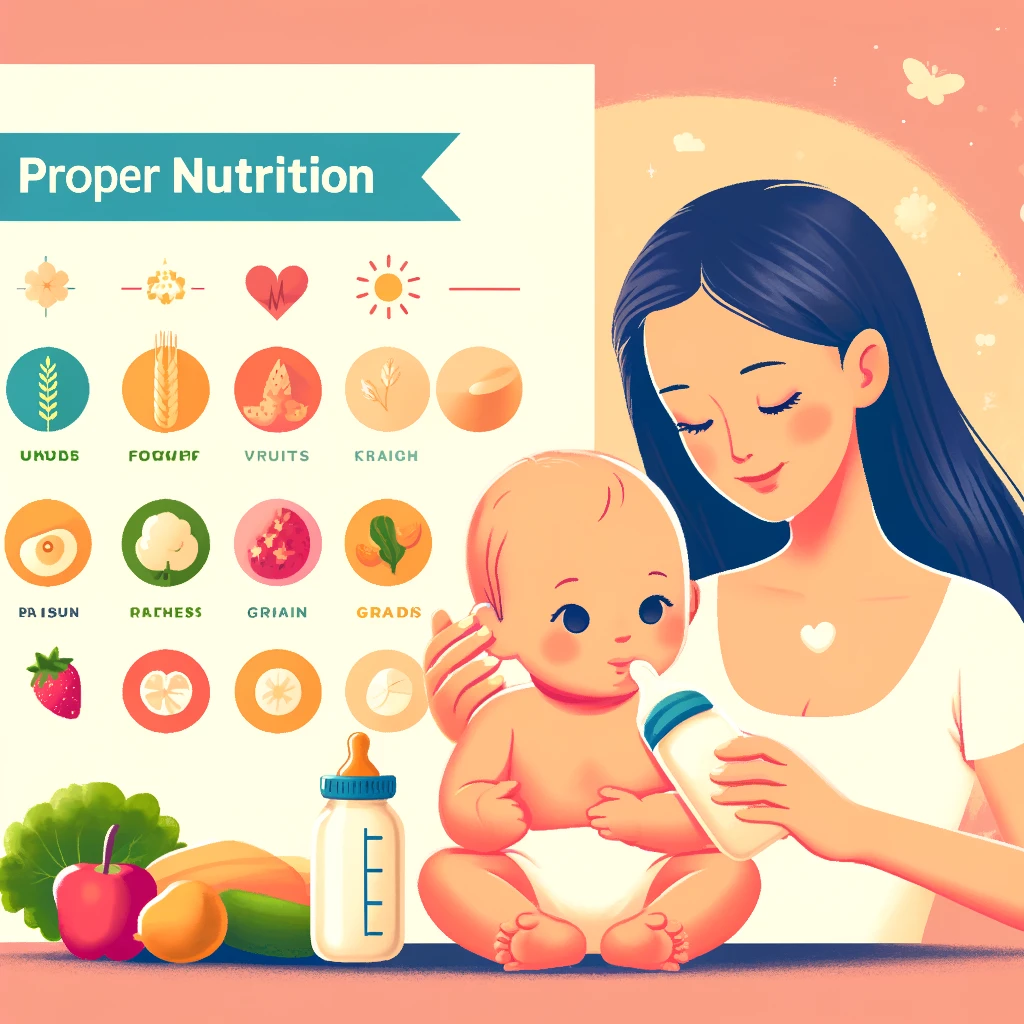
Breast milk and formulas are designed to provide all the necessary nutrients a baby needs in the early stages of life, including vitamins and minerals that support hair growth. As babies start to eat solid foods, it’s important to include a variety of nutrients in their diet, particularly those rich in vitamins A, C, D, E, zinc, iron, and omega fatty acids, which are known to support healthy hair and skin.
Soft Brushing
Soft brushing with a brush that has soft bristles can benefit your baby’s hair growth in several ways. It helps in detangling hair without pulling on it, which can prevent hair loss.
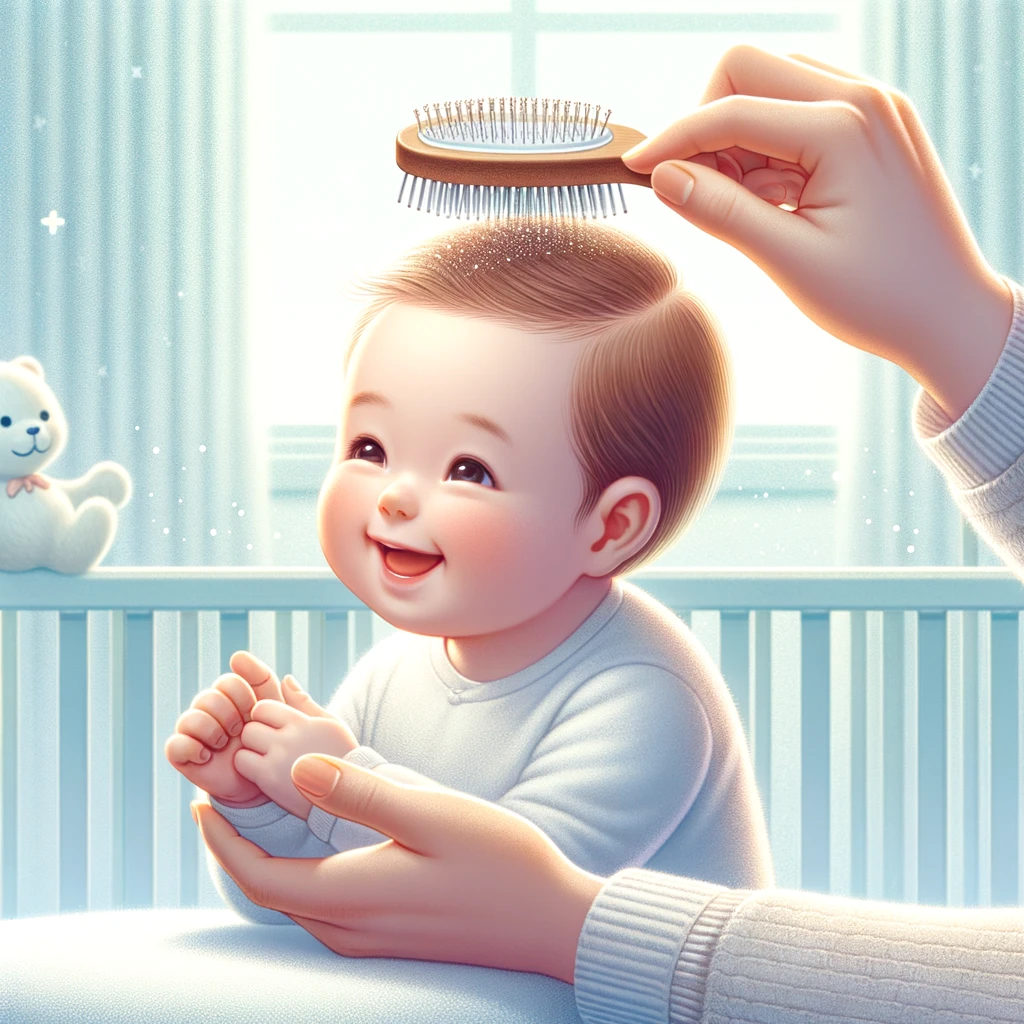
Moreover, brushing gently can stimulate the scalp’s blood circulation, enhancing the flow of nutrients to the hair follicles. This stimulation helps nourish the hair roots and can encourage stronger, healthier hair growth over time.
Avoid Tight Hairstyles
It’s important to keep your baby’s hair relatively loose, avoiding styles like tight braids or ponytails. Tight hairstyles can cause tension on the scalp, potentially leading to a condition known as traction alopecia, where hair is pulled out of the scalp, leading to thinning and hair loss. Keeping your baby’s hair loose helps avoid unnecessary stress on the hair follicles, allowing normal growth without interference.
Minimize Hair Washing
Over-washing a baby’s hair can remove too much of the natural oils that protect and condition the hair and scalp. Limiting hair washing to a few times a week is generally sufficient to keep your baby’s hair and scalp clean without over-drying.
This approach helps maintain the natural oils that are essential for keeping the scalp healthy and hair follicles strong, which is crucial for normal hair growth and preventing hair breakage.
Use Natural Oils
Massaging the scalp with natural oils like coconut oil, almond oil, or specially formulated baby oil can be very beneficial for a baby’s hair health. These oils serve multiple purposes: they moisturize and nourish the scalp, prevent dryness, and can soothe any irritation. This not only helps in keeping the scalp healthy but also provides essential nutrients directly to the roots of the hair, which can encourage stronger and healthier hair growth. The act of massaging itself improves blood circulation to the scalp, further enhancing the delivery of nutrients to hair follicles.
Keep the Scalp Dry
It’s important to make sure your baby’s scalp is thoroughly dried after bathing. A damp scalp, especially over prolonged periods, can become a breeding ground for fungal or bacterial infections, which might lead to scalp issues like cradle cap or dermatitis. These conditions can negatively affect the health of the hair follicles and impede hair growth.
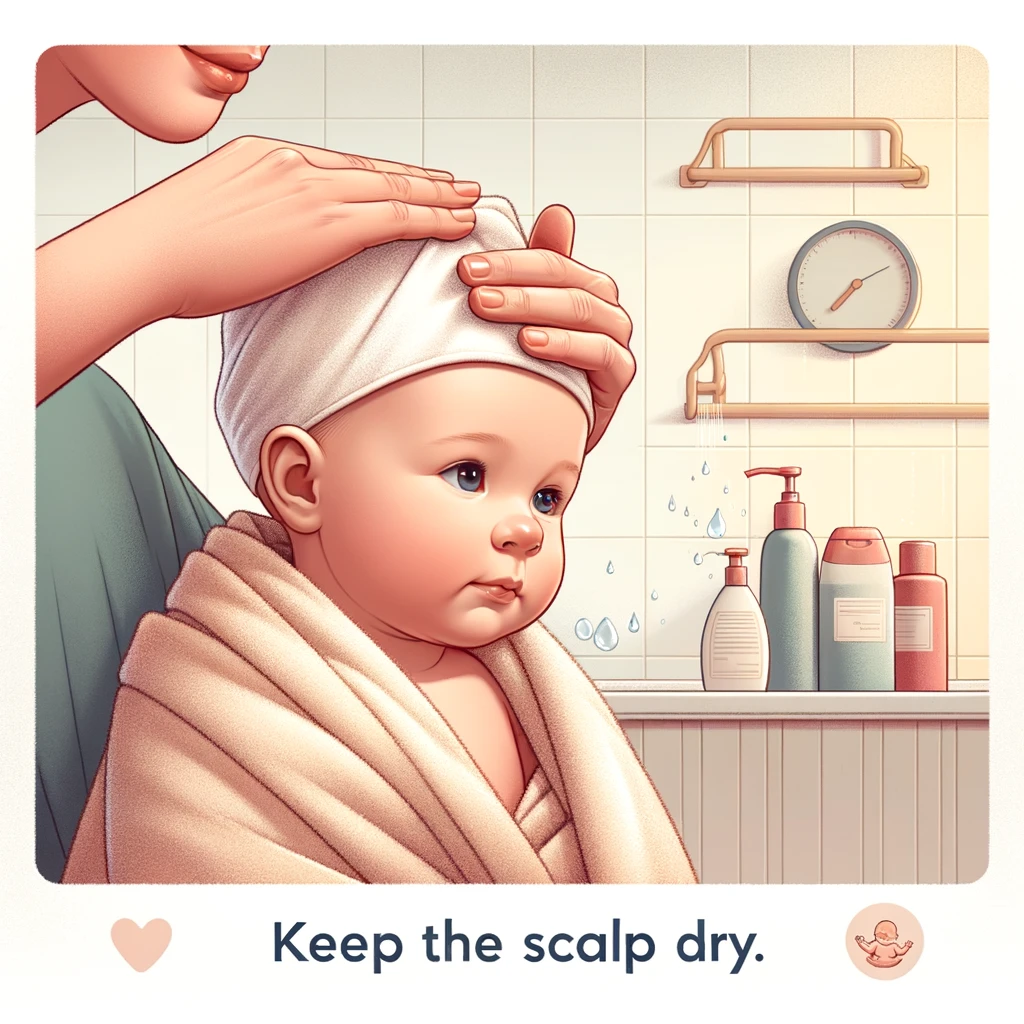
By ensuring the scalp is dry, you help maintain its health and prevent conditions that could affect hair growth.
Limit Sun Exposure
Protecting your baby’s delicate skin and scalp from excessive sun exposure is crucial. UV rays can not only damage the skin but also degrade the strength and health of the hair. Using a hat or cap to cover your baby’s head while outside can help shield the scalp from direct sunlight, preventing potential damage and helping maintain optimal conditions for hair growth.
Avoid Harsh Chemicals
Many adult hair care products contain chemicals that are too harsh for a baby’s sensitive scalp. Using hair products formulated with harsh chemicals can lead to scalp irritation, dryness, or worse, affecting the overall health of the hair follicles.
Opting for natural or specifically formulated baby hair products ensures that the ingredients are gentle and safe for use on babies, minimizing the risk of adverse reactions and supporting healthy hair growth.
Encourage Sleep
Sleep plays a fundamental role in the overall growth and development of infants, including hair growth. During sleep, the body goes into repair mode, which includes regenerating skin cells and hair follicles. Ensuring that your baby gets adequate sleep allows their body to properly carry out these essential functions.

Consistent, quality sleep is linked to better health outcomes and can promote stronger, healthier hair growth by allowing the body to naturally rejuvenate.
Hydration
As babies grow and start to consume more than just milk, ensuring they are well-hydrated becomes increasingly important. Adequate hydration is crucial for maintaining the overall health of a child, which directly impacts hair health.
Water helps to regulate the circulatory system, which feeds the hair follicles and promotes healthy hair growth. For older babies who can drink water, it’s essential to provide them with regular water throughout the day to support their body’s natural functions and aid in the development of strong, healthy hair.
Regular Pediatric Checkups
Regular visits to the pediatrician are crucial for monitoring your baby’s overall health, including factors that affect hair growth. These checkups can help catch and address any nutritional deficiencies, hormonal imbalances, or medical conditions that might impede hair growth at an early stage.
The pediatrician can also provide guidance tailored to your baby’s specific needs, ensuring that they are developing correctly and any issues that could affect their hair or health are managed promptly.
Use a Humidifier
Using a humidifier in your baby’s room, especially in dry climates or during colder months when indoor heating can dry out the air, helps maintain a suitable level of humidity. This can prevent the baby’s hair and scalp from becoming too dry.
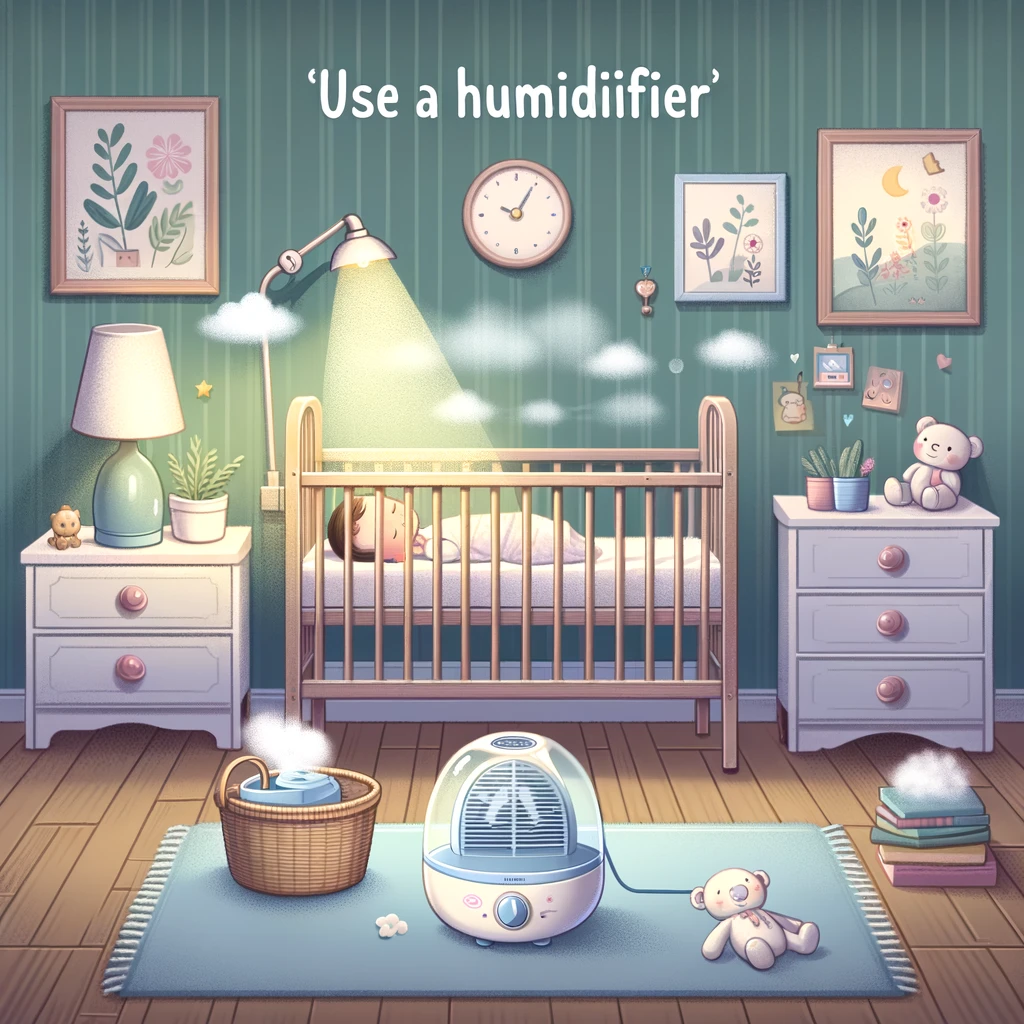
Dry scalp can lead to itchiness, dandruff, and other conditions that may negatively impact hair growth. By keeping the air moist, the humidifier helps preserve the natural moisture in your baby’s hair and scalp, promoting healthier hair growth.
Avoid Stress
While it may seem unlikely, babies can indeed be sensitive to stress, which can affect their overall health and development, including hair growth. A calm and stable environment helps promote healthy bodily functions and reduces the production of stress hormones that could negatively impact hair follicle function.
Activities like gentle rocking, soft music, and regular routines can help minimize stress for babies, creating a conducive atmosphere for healthy growth and development.
Be Patient
Finally, it’s important to remember that each baby is unique, and so is their rate of hair growth. Some babies may have a full head of hair at birth, while others might have very little. Hair thickness, growth rate, and patterns can vary widely and change over time.
Patience is key as your baby’s hair goes through natural growth cycles. Avoid comparing your child’s hair growth to others and trust that with proper care, your baby’s hair will grow in its own time and way.
